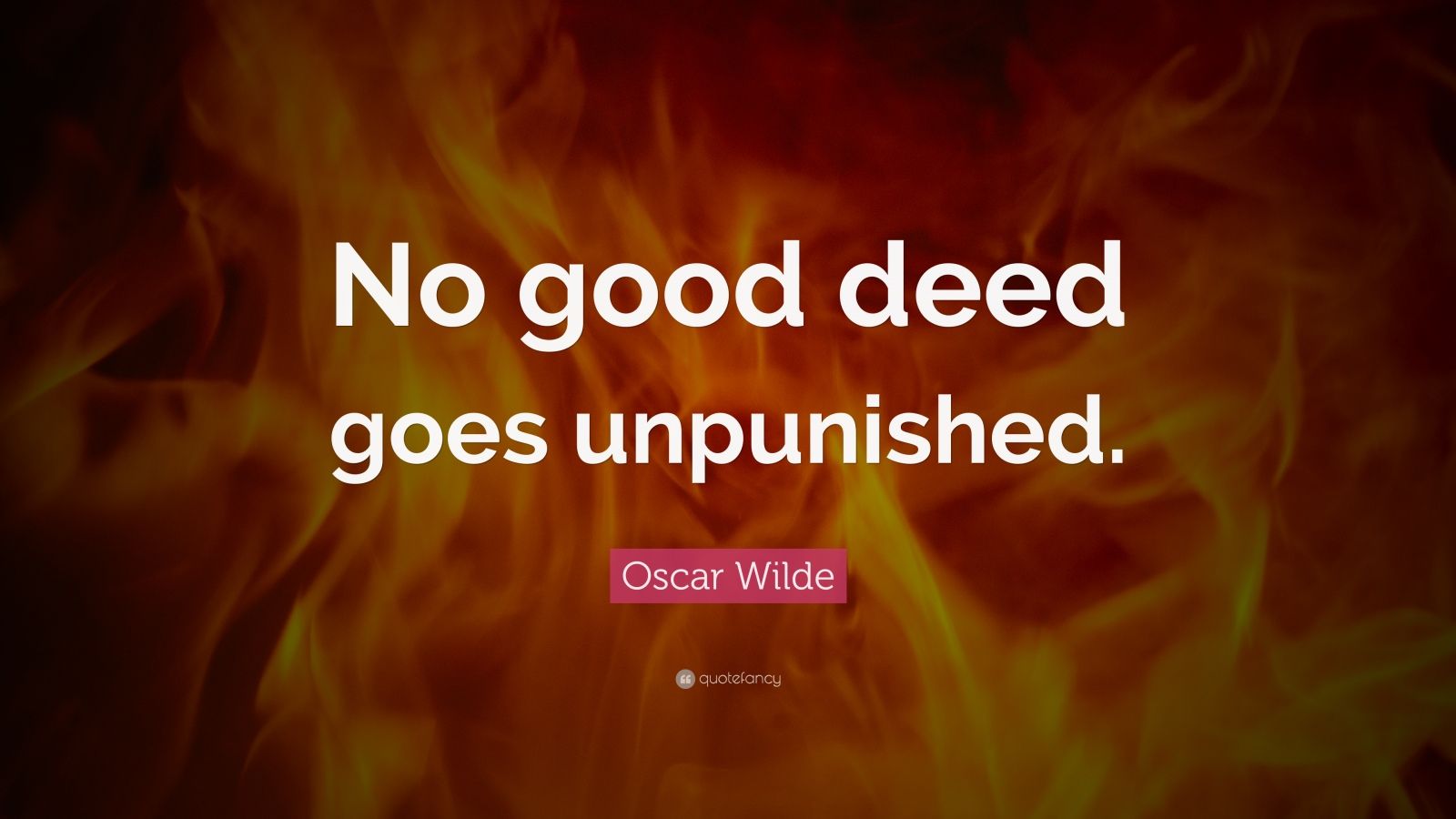The phrase “no good deed goes unpunished” has become a staple in modern vernacular, often used to express the frustration that sometimes, efforts to help others can backfire. This article delves deep into the origins, implications, and real-world examples of this ironic adage. By the end, you’ll have a comprehensive understanding of why this phrase resonates with so many and how it plays out in various contexts.
In a world where acts of kindness are encouraged, the phrase “no good deed goes unpunished” serves as a sobering reminder that good intentions do not always yield positive outcomes. This article aims to explore the multifaceted nature of this phrase, examining its origins, notable examples, and the broader societal implications. Whether you have experienced this irony firsthand or are simply curious about its meaning, this comprehensive guide will provide valuable insights.
Key Takeaways
- The phrase “no good deed goes unpunished” highlights the irony that good actions can sometimes lead to negative consequences.
- Understanding the background and context of this phrase can help individuals navigate complex social dynamics.
- Real-world examples illustrate how this adage manifests in both personal and professional settings.
- Public Reaction often amplify the impact of such situations, shaping public perception.
- Future prospects involve recognizing and mitigating the risks associated with good deeds.
Let’s Get Right To It
Involving Parties?

At the heart of the phrase “no good deed goes unpunished” are individuals who, despite their best intentions, find themselves facing unintended consequences. These can range from everyday people performing acts of kindness to public figures and organizations involved in charitable activities. Understanding the backgrounds and motivations of these individuals is crucial to grasping the full scope of this phenomenon.
Events Timeline
The concept of “no good deed goes unpunished” is not new. Historical records and literature are rife with examples where altruistic actions have led to unforeseen repercussions. From ancient myths to modern-day anecdotes, the timeline of events showcases a pattern that transcends cultures and eras. Notable milestones include:
- Ancient Times: Stories from Greek mythology, such as the tale of Prometheus, who suffered for giving fire to humanity.
- Middle Ages: Accounts of knights and saints who faced persecution despite their noble deeds.
- Modern Era: Contemporary examples involving whistleblowers, philanthropists, and activists who encountered backlash.
Impact
The repercussions of good deeds gone awry can be profound, affecting both personal and professional lives. On a personal level, individuals may experience emotional distress, damaged relationships, and a sense of betrayal. Professionally, the fallout can include career setbacks, legal troubles, and tarnished reputations. Understanding these impacts helps shed light on why the phrase “no good deed goes unpunished” holds such weight.
Public Reaction
The role of Media Reaction cannot be overstated. In today’s digital age, news spreads rapidly, and public opinion can be swift and unforgiving. Media coverage often amplifies the consequences of good deeds gone wrong, shaping public perception and influencing the narrative. Significant examples include:
- Case Study 1: A philanthropist who faced public scrutiny and legal challenges after their charity work was questioned.
- Case Study 2: A whistleblower who, despite exposing corruption, faced severe personal and professional repercussions.
Upcoming Plans
Looking ahead, it is essential to recognize the potential risks associated with good deeds and develop strategies to mitigate them. This involves fostering a culture of transparency, accountability, and support for those who act with good intentions. Future prospects include:
- Policy Changes: Implementing protective measures for whistleblowers and individuals involved in charitable activities.
- Educational Initiatives: Raising awareness about the potential pitfalls of good deeds and promoting ethical decision-making.
- Community Support: Building networks of support for individuals who face backlash for their altruistic actions.
In conclusion, the phrase “no good deed goes unpunished” serves as a poignant reminder of the complexities surrounding acts of kindness. By understanding the origins, real-world examples, and broader implications, we can better navigate the challenges that come with good intentions. While the road may be fraught with obstacles, recognizing and addressing these issues can pave the way for a more supportive and understanding society. So, the next time you hear or use this phrase, remember the depth and nuance it carries, and strive to ensure that good deeds are met with the recognition and respect they deserve.


